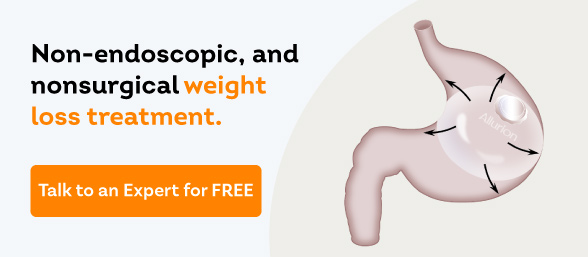![]() Views: 260
Views: 260
How Weight Loss Works?
Dedicated Support at Every Step!
Our Doctors are available 24 hours a day, 7 days a week to help you!
Call Us6366-526-937Table of Contents
Introduction
While all of us are aware of the term ‘weight loss’ and hear it every now and then, are we really aware of how weight loss actually works? Keep reading to find out how weight loss works, the factors that affect weight loss, and what’s considered ‘healthy’ weight loss.
What Does ‘Weight Loss’ Mean?
In the simplest terms, weight loss in the context of medicine means losing body weight or a reduction in body mass. Sometimes, weight loss happens naturally due to malnutrition, diseases, stress, etc. But, in some cases, people resort to different methods to shed weight themselves to achieve a healthy body weight, get rid of certain health conditions such as obesity, or enhance their appearance.
How Does Weight Loss Happen?
Weight loss happens in a particular manner- there’s a process to how it happens. It majorly happens when you consume fewer calories than you burn on a daily basis. On the contrary, weight gain occurs when calorie consumption is higher compared to the number of calories you burn in a day.
A calorie is a unit of energy. Anything that you eat or drink in a day has calories that contribute to your overall calorie intake for the day. There are certain components to the number of calories a person burns in a day which is also known as ‘calorie expenditure’.
Calorie expenditure typically consists of the following components:
- Resting metabolic rate (RMR): This includes the number of calories required by the body to perform normal bodily functions, including pumping blood, breathing, organ function, etc. It generally involves the calories your body burns when your body is at rest.
- Thermic effect of food (TEF): This is the amount of energy or calories required by the body to digest, absorb, metabolize, and store the remaining food.
- Thermic effect of activity (TEA): These are the calories your body uses during exercise or other strenuous activities.
You should note that if your calorie consumption aligns with the number of calories you burn in a day, you’ll be able to maintain your body weight, which means no loss or gain in weight. But, in order to lose weight, it is important to create a ‘negative calorie’ balance, which can only be achieved by consuming fewer calories than you burn consistently. If your physical activity is more compared to how much you consume, or the amount of food you consume is lesser compared to your daily activity, you’ll most likely lose weight.
What Factors Affect Weight Loss?
The process of losing weight isn’t the same for everyone- it varies from person to person. While some people lose weight easily, others have to toil hard in the gyms to shed a couple of pounds. Several factors affect how you lose weight and also the rate at which you lose weight. We’ll now discuss some of the many factors that can impact weight loss and how they do it:
Age
Several bodily changes arise with age, which causes the body composition to alter. This change generally causes an alteration in your body’s calorie requirement, which contributes to a lower RMR. Therefore, the decrease in RMR makes weight loss difficult as the person ages.
Gender
A person’s fat-to-muscle ratio has a significant role in a person’s ability to lose weight. This ratio is generally higher in women than men, and their RMR is, therefore, lower than men who’re of the same height as them. Therefore, women burn fewer calories compared to men when at rest. The process of weight loss is quicker in men compared to women who consume the same amount of calories as them.
Family History & Genes
Family history and genres can make it difficult for some people to shed extra pounds. If there’s a history of overweight or obesity in the family, it can make it difficult for the person to lose weight.
Calorie Deficit
As discussed, in order to lose weight, you must maintain a negative calorie balance consistently, i.e., consume fewer calories than you burn. But, the amount of calorie deficit you maintain can also impact how fast you’ll lose weight. But, you must ensure that having a large calorie deficit can also lead to nutritional deficiencies. It is advisable to seek advice from a nutritionist to understand how much calorie deficit on a daily basis can help you lose weight in a healthy weight, based on your present weight and weight loss goals.
Sleep
Most people tend to overlook sleep as an integral component of weight loss. However, not getting enough sleep can actually affect your weight loss goals by impacting the speed at which you lose weight. Sleep deprivation is said to increase a person’s desire to consume high-calorie foods. This, therefore, not only hampers the weight loss process but also puts you at risk of obesity, diabetes, heart disease, etc.
Medical Conditions
People with certain physical or mental health issues may also find it difficult to lose weight. Conditions such as hypothyroidism or depression generally impact weight loss and often cause people to gain weight.
What Are The Best Ways Of Losing Weight?
You can take various different routes to shed those extra pounds while maintaining your overall health. This is called losing weight in a ‘healthy’ manner. And so, we have listed the best ones below:
Maintain A Healthy Diet
The importance of maintaining a healthy diet for weight loss can’t be stressed enough. A healthy diet comprises the right foods in the right quantity. The dietary intake of a person depends on the individual requirements of their body, among other factors. Therefore, it is advisable to get your diet from a nutritionist. They’ll examine your body type, the amount of weight you wish to lose, and other factors before giving you a specialized diet plan.
Add Some Workout To Your Routine
Maintaining a diet wouldn’t solely help you lose weight. Including some physical activity in the routine also aids in weight loss, besides ensuring your overall well-being. Physical activity can include a regular gym or home workouts, playing a sport, walking/jogging, etc. The idea is to maintain a negative calorie balance by burning more calories than you consume on a regular basis.
Go For Surgery
Weight loss surgeries come into the picture when patients can’t lose weight through dietary modifications and working out. While weight loss surgeries aren’t an option for everyone, they become necessary when patients begin to have severe health issues due to excess weight and are unable to shed it through other methods. Some common weight loss surgeries include gastric bypass surgery, sleeve gastrectomy, and biliopancreatic diversion with a duodenal switch.
Gastric Balloon Treatment for Weight Loss.
At Pristyn Care, we provide Gastric Balloon Treatment for weight loss, which is a modern, non-invasive weight loss treatment, that doesn’t involve anesthesia or endoscopy. It’s a simple, 15-minute procedure that requires no major lifestyle changes and helps patients lose 10-15% of their total body weight within 16 weeks. Reach out to our team to learn more about Gastric Balloon Treatment for weight loss. Call us today.
To Sum Up
Losing weight in a monitored and calculated manner always provides fruitful outcomes. Understanding how weight loss works is key to ensuring that you only resort to healthy ways of losing weight, set the right and achievable goals for yourself, and do not end up bringing more harm to your health than good. It is advisable to consult with a healthcare provider or a nutritionist before you embark on a weight loss journey. If you’re having issues losing weight by managing your calorie intake or burning it, you can always resort to weight loss surgeries or bariatric surgeries, as they are considered safe and effective for weight loss.
Call the care coordinators at Pristyn Care to obtain clarity on bariatric surgeries and Allurion Gastric Balloon treatment for weight loss. They’ll schedule your appointment with our highly experienced bariatric surgeons or general surgeons, who have extensive experience in providing healthy weight loss solutions and helping patients achieve their desired body weight. Call us today.










